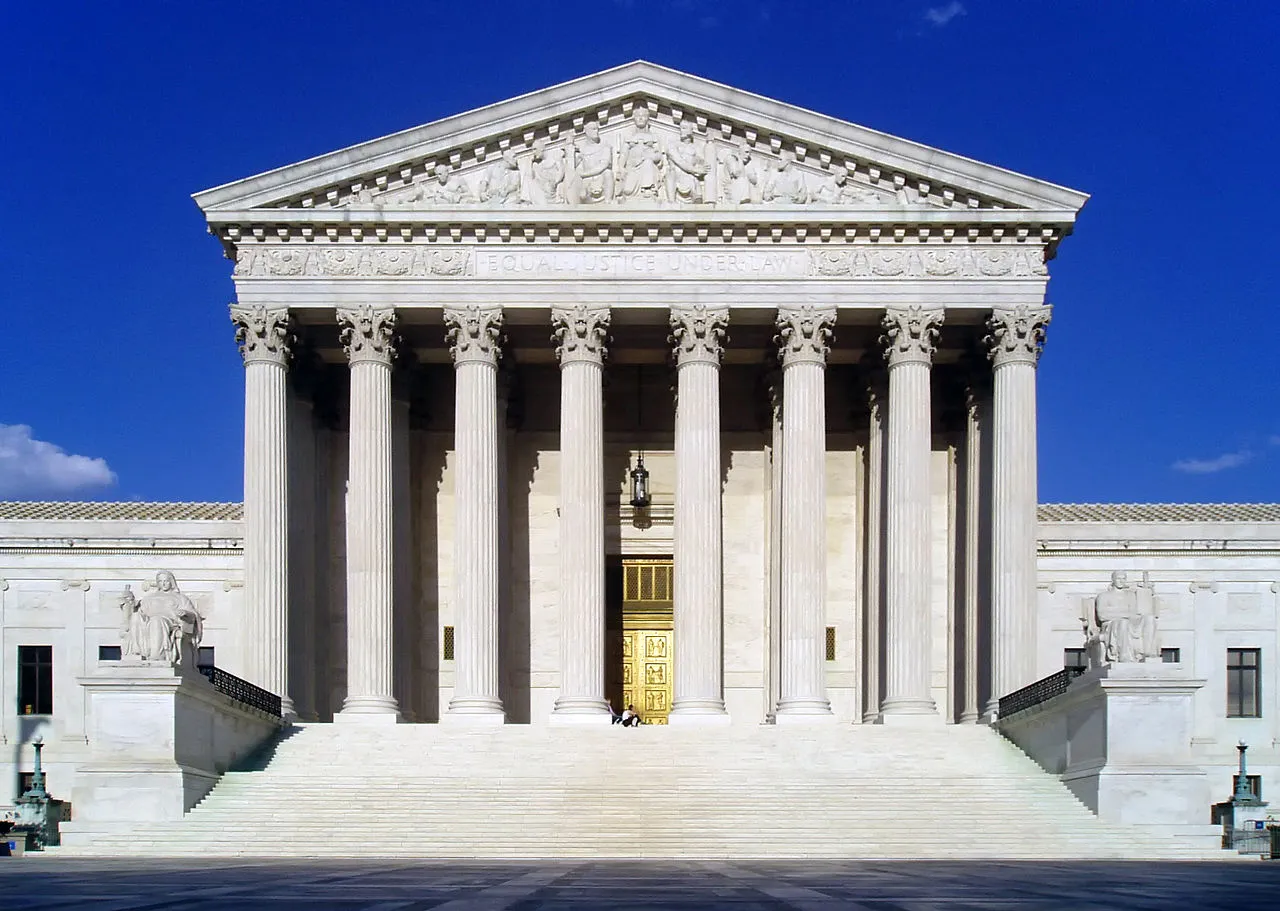
US Supreme Court upholds Trump travel ban.
Jun 27, 2018

In a significant ruling, the US Supreme Court upheld President Trump's travel ban, which restricts entry from several predominantly Muslim countries. The decision affirmed the administration's authority to implement such measures on national security grounds, despite challenges arguing that the ban discriminated against Muslims. The Court emphasized the president's broad powers in foreign affairs and immigration policy. This ruling marked a pivotal moment in the ongoing debate over immigration, national security, and religious discrimination, reflecting deeper divisions within American society regarding these issues. The travel ban's implementation continued to spark protests and legal battles across the nation.
The U.S. Supreme Court's decision to uphold the "Trump travel ban" marked a significant moment in American immigration policy. This ruling reinforced the administration's stance on national security and immigration control, impacting numerous individuals and families seeking entry into the United States. In this article, we will explore the implications of this ruling, the public response, and how it affects various stakeholders.
Background of the Trump Travel Ban
The "Trump travel ban", officially known as Executive Order 13769, was first issued in January 2017. It aimed to restrict entry into the U.S. from several countries identified as high-risk for terrorism. The countries initially included Iran, Iraq, Syria, Libya, Yemen, Somalia, and Sudan. The ban faced immediate legal challenges and sparked nationwide protests, emphasizing the contentious debate surrounding immigration and national security.
After several revisions and legal battles, the Supreme Court ultimately agreed to hear the case, focusing on whether the ban was constitutional and if it adhered to the executive powers granted to the president. The court ruled in a 5-4 decision, stating that the ban fell within the president's authority to protect national security. This ruling was crucial for the Trump administration, as it validated their immigration policies during a time of heightened scrutiny.
Implications of the Ruling
The Supreme Court's decision to uphold the "Trump travel ban" has far-reaching consequences. Here are some key implications:
| Implication | Description |
|---|---|
| Stricter Immigration Controls | The ruling allows the government to enforce stricter immigration policies, potentially leading to more bans or restrictions on additional countries. |
| Legal Precedent | This decision sets a legal precedent for future administrations regarding the extent of executive power in immigration matters. |
| Impact on Families | Many families have been separated due to the travel ban, and the ruling may prolong their struggles to reunite. |
| International Relations | The ban has strained relations with certain countries, particularly those included in the list, and may affect diplomatic negotiations. |
Public Response to the Travel Ban
The public response to the "Trump travel ban" was deeply divided. Proponents argued that it was necessary for national security and preventing terrorism. They believed that restricting entry from certain countries would enhance safety for American citizens. On the other hand, opponents viewed the ban as discriminatory and harmful to innocent individuals and families. They argued that many of those affected were fleeing violence and persecution, and this ban stifled their hopes for a better life in the United States.
Numerous organizations, including the American Civil Liberties Union (ACLU) and various immigrant rights groups, rallied against the travel ban. They organized protests, provided legal assistance for those affected, and lobbied for legislative changes to counteract the administration's policies. The ruling further galvanized these groups, leading to increased activism and advocacy for immigrant rights.
Impact on Refugees and Visa Holders
The "Trump travel ban" particularly affected refugees and visa holders from the designated countries. Many individuals who had been granted asylum or were in the process of obtaining visas found themselves in limbo. Some were turned away at airports, while others faced lengthy delays in their applications.
In response to this situation, various organizations and legal entities worked tirelessly to provide resources and support for those impacted. They offered guidance on alternative immigration pathways and legal recourse for individuals who faced challenges due to the travel ban.
Conclusion
In summary, the U.S. Supreme Court's decision to uphold the "Trump travel ban" has significant implications for immigration policy, national security, and the lives of countless individuals. The ruling underscores the ongoing debate over executive power in immigration matters and highlights the challenges faced by those seeking refuge in the United States. As the political landscape continues to evolve, the ramifications of this decision will undoubtedly shape future immigration policies and the experiences of immigrants in America.
Understanding the complexities of the "Trump travel ban" and its impact is essential for anyone interested in U.S. immigration policy. This ruling serves as a reminder of the delicate balance between national security and humanitarian considerations in the realm of immigration.
Related Articles

Explore Thailand: The Best Islands to Visit for Paradise, Adventure, and Relaxation

The Ultimate Guide to the Best Islands in Thailand for Your Next Getaway

Do babies need passports? How to get a passport for a newborn

How to get a U.S. passport fast: here’s how to expedite the process

What is Mobile Passport Control: 5 reasons why you should use it

SENTRI vs. Global Entry: A detailed guide

Do you need a passport to go to the Bahamas? Let’s find out

Do you need a passport to go to Mexico? A detailed guide

Do you need a passport to go to Canada? We got the answer

Do You Need a Passport for a Cruise: An Essential Travel Guide

Booster Seat Requirements: All the Rules to Follow in Your Rental Car

What Are the World’s Most Powerful Passports, and How Does Yours Rank?

How to Take a Passport Photo at Home: A Helpful Guide

You've got to have heart! Southwest's new livery

Your opinion: Should water be free on low cost carriers?

Young women bolder than guys as solo travellers
